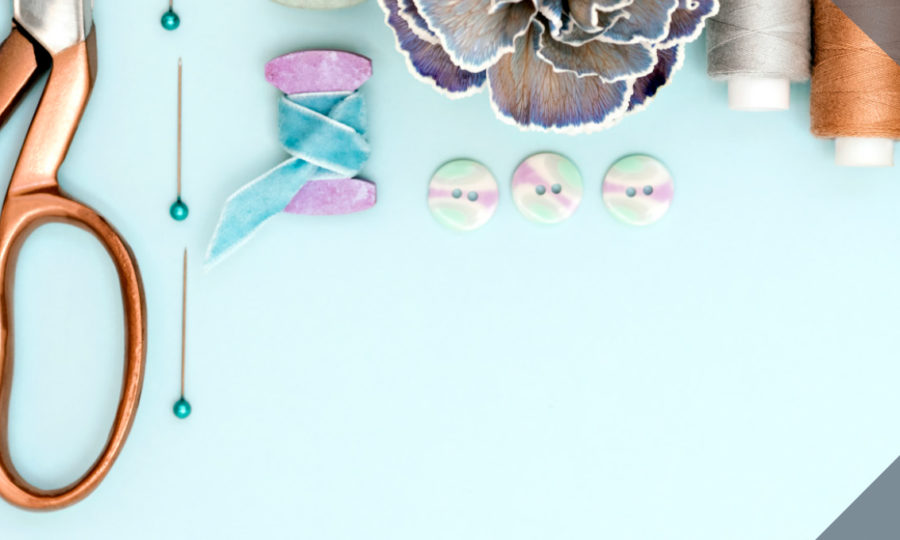5 Tips to Interview Well at an Agency
Kelsea Schreiner Managing Partner
I’ve done a lot of interviewing in my 10 years at Kinetic. I’ve been across the table from some really amazing talent. I’ve also experienced a number of bad interviews. My hope is to share some tips so your agency interview doesn’t fall in the latter category.
The most interesting interviews are when I know the person is a fabulous fit for our agency, has the right skills and the chops to handle the job, but just isn’t selling themselves well. They aren’t answering questions succinctly. They don’t offer up relevant and relatable information.
In these cases, it’s unlikely they’ll get the job because at that point, I have to make the judgment call that they aren’t selling themselves and risk that I may be dead wrong. I don’t want to take that risk. I want to be 100% sure that the person sitting across from me would be the best fit for our company before they sign on. And, odds are there is another candidate who shows up better.
If, as a reader, you’re interested in working at an agency (or at Kinetic!), my hope for you is that you’ll glean some really great tips to interviewing at a creative agency. You’ve applied, you’ve scored an interview, now you just need to nail it – and get that job.
1. Research the job, the industry and the business
Before you walk into the interview, know what the job you’re applying for entails. Understand how your previous job experience can relate – or even how your personal experiences would relate.
We aren’t interested in your previous barista job if you can’t cross the divide and explain how it can be beneficial to your potential position here. If you don’t have direct experience, know that not all is lost – your previous, seemingly related experience CAN be very beneficial in a professional position. You just need to be able to explain how.
2. Prepare your answers
If you’ve been in an interview before (and most of us have), you should likely know many of the common questions the interviewer will ask. Prepare your answers. Know how to succinctly tell “Your Story” in an elevator-type pitch. Interviewers don’t like rambling, long-winded explanations or stories to nowhere. In fact, we’ve heard them all before and can spot the tell-tale I-don’t-know-where-this-is-going look. If anything, take a breath, repeat the question… then answer.
3. Recognize yourself and brag on your value
An interview is not the time to be humble. You aren’t having coffee with a friend with whom you’re humbly catching up. Bring your strengths, aspirations, accomplishments, or points of view. Ask germane questions and show you did your homework.
Turn a no into a yes. What do I mean by this? When I interview and I ask if you have project management software experience and you don’t, you can answer two ways: A hard “No” OR you can say something like, “No, but I am extremely tech savvy (Hell, I’m a millennial, I know tech inside and out) and I think if you know one program you can quickly learn them all. I’m a quick study and would only need a bit of time to get acclimated.”
See the difference in those two answers? One sounds like a definitive and hopeless no. The other shows a teachable spirit, a penchant for learning and a hustler. Whom would you hire?
4. A time for giving and a time for taking
During the first interview – and many times the second (at an agency you may have multiple interviews before you get properly through the door) – your job is to tell your interviewer, “This is what I can do for you.” Many candidates think it is the other way around.
Remember YOU need something from your potential employer right now… a JOB! The agency doesn’t need you; there are always more candidates for positions than there are openings. In some cases (as with Kinetic), you may be interviewing for a job that isn’t currently open or doesn’t even exist yet.
Tell them what they will get from you. Again, highlight your value and don’t undersell yourself. Bring forward ancillary skills – maybe you’re amazing with tech and can consult with operations. Perhaps you’re applying for an Account Director position but can double as a field producer. Are you a designer who has some mad photography skills? In a small business, employees wear multiple hats. Sell the soap!
Once you get past those first couple interviews (and not before), start negotiating the details such as salary, benefits and flexibility. If the company you’re applying with senses entitlement, odds are they’ll move on. They can sense when a mutually beneficial engagement is not a candidate’s priority and who’s in it for themselves.
5. Put your best self forward
I hate to write about this, but again I’ve interviewed so many candidates over so many years that it is ALWAYS worth mentioning: dress appropriately, make eye contact, and be professional. Yes, this is an agency job and we are all creatives here, but being the creatives we are we have a taste for style, grace and general coolness. If you aren’t cool, at least be eclectic. If you aren’t eclectic, at least be professional. This is still a professional gig and speaking the right body language is important. To be clear, don’t be wrinkled, short-skirted or show all the cleavage.
Interviewers are making decisions with limited information and limited time frames, so we take everything into account – make the best impression possible.
In the end, be as prepared as you can be, show enthusiasm toward the company and position you’re seeking and be relatable. Bring a copy of your resume or portfolio EVERY TIME. Agencies hire based on a delicate dance of skills and culture – make sure if you want the job, you are addressing both.
If your hope is to interview with Kinetic, you think your skills fit and you now know all the potential pitfalls, apply here! Upload your resume and introduce yourself. We’d love to chat with you!
Kelsea Schreiner
Managing Partner
Kelsea Schreiner has helped many companies and organizations identify and embrace marketing strategies to boost their business and lift their sales. As an account director starting in 2007, She worked with a long list of clients – national companies, regional enterprises and local firms and nonprofits. Since 2016, she’s been our strategic director. In 2021, she became a partner.
Kelsea understands market trends, digital analytics, and how to manage team projects. She’s led the development of websites, video productions and photo shoots to help clients connect with customers, employees and prospective employees. She’s a Certified Usability Analyst and received her MBA from the University of Montana in 2018.
Read more about Kelsea


